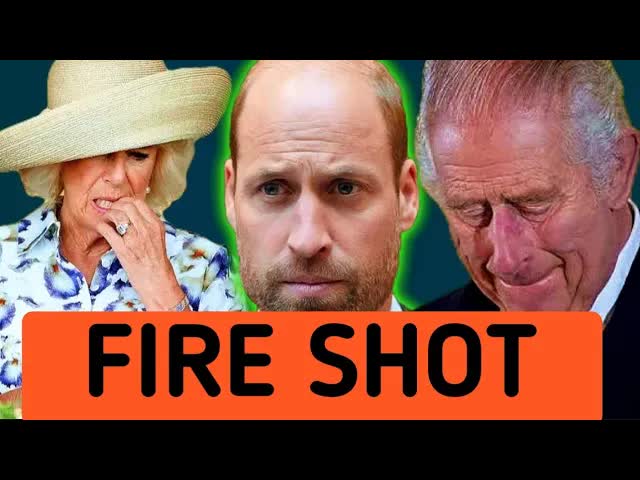The British royal family, with its rich tapestry of history and tradition, has long stood as a symbol of continuity for over a millennium.
From the reign of William the Conqueror to Queen Elizabeth II’s current rule, the monarchy has witnessed profound transformations in power and influence.
The Windsors, who have led the monarchy for more than a century, have experienced two world wars, significant political upheavals, and the transition of Britain from an imperial powerhouse to a modern nation.
However, as society evolves, one must ask: is the monarchy keeping pace with these changes?
The Windsors are frequently in the media spotlight, with their personal lives dissected and discussed endlessly.
But is this constant focus on themselves truly beneficial?
Or does it distract from pressing societal issues such as poverty, inequality, and climate change?
Critics argue that this self-obsession not only detracts from vital matters but also fosters a celebrity-like monarchy, which strays far from the traditional role of a monarch as a leader and statesperson.
Despite the criticism, the fascination with the Windsors remains strong, both in Britain and around the globe.
Their every move is scrutinized, and their words analyzed, creating a culture of obsession that can overshadow more critical topics.
As we explore this phenomenon, it’s essential to remain open-minded and challenge our perceptions of this royal family, whose historical grandeur often seems at odds with their modern-day self-focus.
Take, for instance, Queen Elizabeth II’s infamous “Annus Horribilis” speech in 1992.
Amid a series of public relations crises, the Queen chose to share her personal struggles, revealing a worldview that seemed preoccupied with her own troubles.
Similarly, Prince Charles has been criticized for his apparent fixation on public image, highlighted by the scandalous leak of private conversations during the Tampon Gate incident, which painted him as a man absorbed in his own affairs.
More recently, the saga involving Prince Harry and Meghan Markle, particularly their explosive interview with Oprah Winfrey, showcased the Windsors’ tendency to prioritize personal drama over their royal duties.
These instances reflect a broader pattern within the family—one that suggests their interests lie more within the palace walls than in addressing the needs of their subjects or the nation.
While some may find this self-absorption intriguing, many view it as an outdated trait, especially in today’s fast-paced world.
The Windsors’ influence extends beyond the UK, impacting Commonwealth nations and shaping international relations.
Their symbolic status often puts them in the global spotlight, yet their narratives can obscure more pressing global challenges, leading to a skewed perception of Britain’s role on the world stage.
Royal events like weddings and anniversaries capture worldwide attention, diverting resources and focus away from critical issues.
While these celebrations may entertain, they starkly contrast with the realities of poverty and inequality faced by many.
This disconnection raises questions about the relevance of monarchies in the contemporary world, as the Windsors’ lavish lifestyle often highlights a privilege that feels out of touch with the struggles of ordinary people.
Moreover, the Windsors’ self-centered narratives influence global culture, dictating trends and lifestyles that may overshadow local traditions.
This cultural hegemony perpetuates an image of royalty that many view as increasingly irrelevant and disconnected from modern values.
The world appears weary of this royal self-focus and is calling for a shift towards greater responsibility and awareness of global issues.
The legacy of the Windsors’ ancestors, who played pivotal roles in shaping the world, is complex and often controversial.
From Queen Victoria to King George V, their decisions left lasting impacts, yet many of these actions were rooted in colonialism and exploitation.
Today, the Windsors seem more inclined to celebrate their royal heritage while glossing over the darker chapters of their past, raising concerns about their priorities.
As the world continues to evolve, the Windsors must recognize that their self-obsession is increasingly out of step with contemporary expectations.
The voices of the people are growing stronger, demanding that leaders be attuned to the needs of the many rather than remaining isolated in their royal bubbles.
The monarchy’s focus on preserving its image risks alienating a society that yearns for authenticity and accountability.
Ultimately, the Windsors have a responsibility that extends beyond their privileged existence.
They must acknowledge the weight of their legacy and embrace the changing landscape of the 21st century.
The world is watching and waiting for them to step out of their self-imposed limitations and engage meaningfully with the pressing issues of our time.
The time has come for the Windsors to shift their narrative from self-obsession to global responsibility, recognizing that their position comes with the obligation to serve the public good.
The world deserves better than a royal family fixated on its own reflection; it deserves leaders who are willing to confront the realities of today and work towards a more equitable future.
